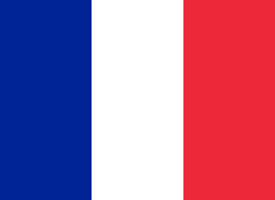Along the Marmara Sea:
We managed to tear ourselves away from Istanbul after over 5 weeks. Five weeks to tour the city, take in its sights, apply for and wait for the Iranian visa, receive the last of our vaccines, and especially wait for our packages at the post office. Mom’s package with my allergy medication hadn’t arrived after five weeks, and we’d finally decided to go. We packed up and checked one last time – and lo and behold! – there they were!
We took a ferry boat to Yalova from Istanbul – a crazy ferry boat, not at all like the passenger ones in Istanbul. It was more like an airplane, and just as large! Stewards served sandwiches and juice on carts between the aisles, and there were signs on the front of the seats that said: “Life Vest under your Seat.”
Shortly after leaving the port, a man pulled up beside us on his motorcycle and showed us the way to a place on the beach where we could camp. Sandy beach, the lulling sound of the waves, laying with Stephane under the stars. Very cool.
The next few days, we followed the coastline of the Marmara Sea, with its clear waters and mountains covered in olive and fig trees – very Mediterranean. We biked early in the morning and again in the evening, stopping at the beach in the afternoon to avoid the hottest sun of the day. Some of the beaches were sandy; most were rock beaches. Stephane made shade for us by attaching one sheet between the two bikes above us, while we lay, protected, on our mattresses underneath.
Swimming was a crazy experience! First of all, the water was so frigid that it hurt. Secondly, we swam among HUNDREDS of jellyfish – all around us, impossible to get away! Twenty of them touched you at one time, all slimy and gross. That was the bad part. The good part was that they didn’t sting.
We met a lot of Turks vacationing along the coast, mostly from Istanbul. The kids and teenagers approach us easily because they think we’re still teenagers ourselves. We met some who were very sweet. They gave us kisses as we were leaving, and one young girl told Stephane, “Je t’aime.”
I walked along the beach with one French family of Turkish origin. The mother, originally from Turkey, made a revealing comment: she thought that it was hypocritical of women who wear the scarf or veil to also wear make-up and to paint their nails. If the purpose of covering yourself is so that you don’t attract the attention of men, then why wear make-up, which is designed to do just that? It was interesting to hear a Turkish woman’s viewpoint.
One father invited us to picnic with his family, and gave us another viewpoint of the Muslim religion. He drank beer and smoked and made fun of the chador-wearing women who came to the beach with their children.
Men offered us tea, children brought us fresh fruit, one man caught a bucketful of mussels, took them home to cook and brought them back for us to eat, and another woman offered to let us shower in her house. Our days were spent like that – biking over the mountains in the morning, resting on the beach in the afternoon, and biking again in the cool evening. One afternoon, we had a completely private beach all to ourselves. I laid in the shade of a tree reading my book on the lives of Muslim women, while Stephane caught mussels in the sea and cooked them up for lunch.
From Bursa to Ankara:
After leaving the coast, we biked through Bursa, the first capital of the Ottoman empire, which is now a dense, sprawling industrial center. Then east towards Eskisehir, stopping on a cliff’s ledge to install ourselves in our tent for the night. A large group stopped at the same spot the next morning for their breakfast; three families in three cars piled out, spread their picnic blankets before them and laid out a copious breakfast of stuffed grape leaves, stuffed peppers, olives, cheese, tomatoes, cucumbers, pastry, and tea – the standard breakfast fare in Turkey. We joined in gladly, our taste buds glad for the change from our daily breakfast of water, dried fruit, and nuts.
The coastal mountains eased their way into gentle rolling hills and plains, in varying shades of gold, orange, red, and brown. There were few trees, and even fewer towns. Though there were 50, or even 100 km., which separated the towns, we could still find water easily enough in the fountains alongside the road, which we used to fill our water bottles and to wash up. As cleanliness is an important aspect of the Muslim faith, fountains are everywhere in the country. The fountains also have the benefit of being the place where the truckers stop to refill their bottles, so that they could tell us which routes to take and which to avoid. One old man with a friendly disposition and a bright eye brought his donkey up to Stephane to let him drive (which apparently wasn’t so easy – there’s a reason why donkeys are said to be stubborn!). He rolled his worry beads over and over again between his fingers, talking easily to the truckers who stopped, and looking as if he’d been doing the same thing every day of his life and would continue doing the same thing every day of his life.
As we headed into the drier climate of central Anatolia, the wind picked up and sent the dust and sand swirling about us.


